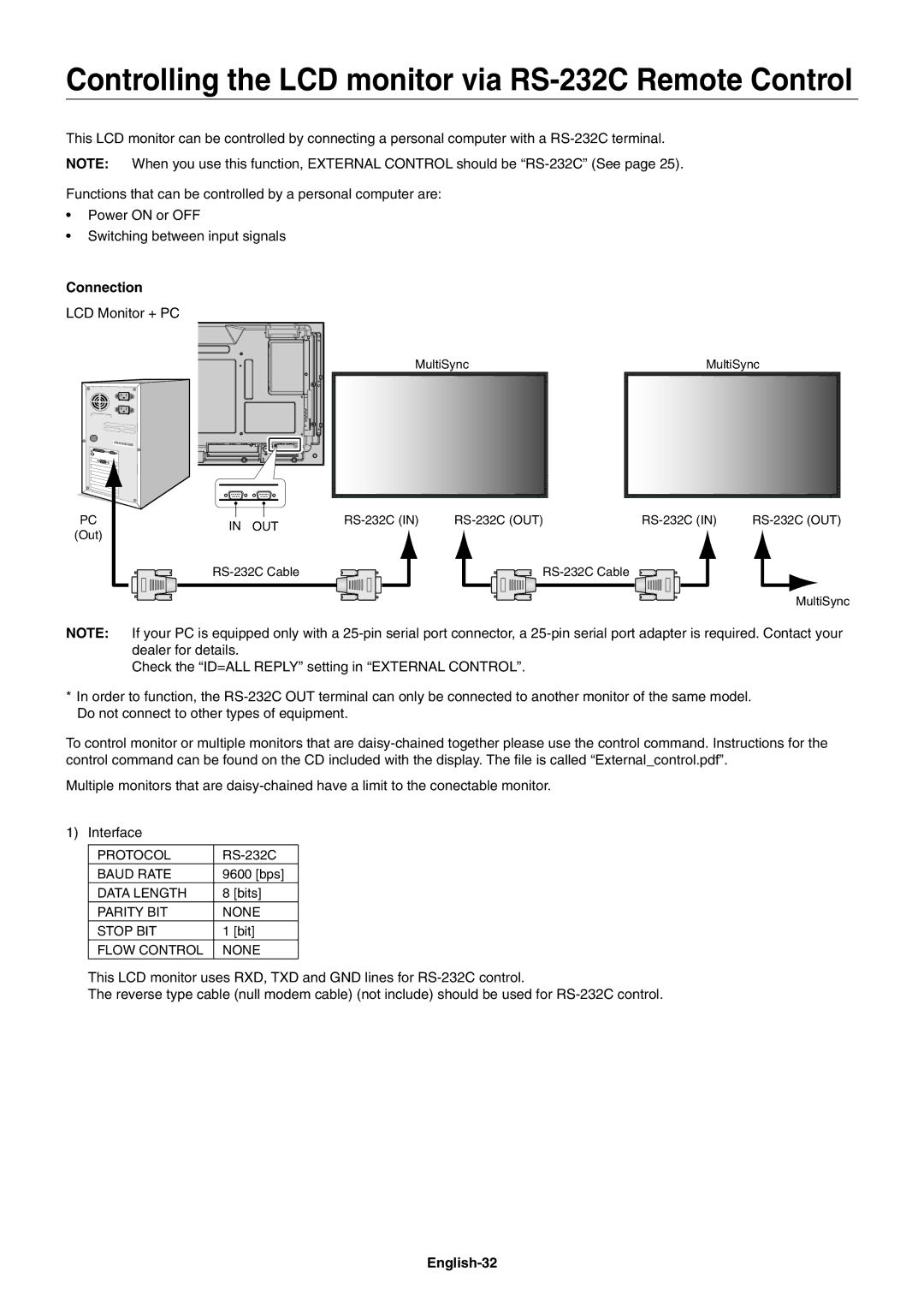
Controlling the LCD monitor via RS-232C Remote Control
This LCD monitor can be controlled by connecting a personal computer with a
NOTE: When you use this function, EXTERNAL CONTROL should be
Functions that can be controlled by a personal computer are:
•Power ON or OFF
•Switching between input signals
Connection
LCD Monitor + PC
MultiSync | MultiSync |
PC |
|
|
|
| |||||
IN | OUT | ||||||||
(Out) |
|
|
|
| |||||
|
|
|
|
|
|
|
| ||
MultiSync
NOTE: If your PC is equipped only with a
Check the “ID=ALL REPLY” setting in “EXTERNAL CONTROL”.
*In order to function, the
To control monitor or multiple monitors that are
Multiple monitors that are
1) Interface
PROTOCOL | |
BAUD RATE | 9600 [bps] |
DATA LENGTH | 8 [bits] |
PARITY BIT | NONE |
STOP BIT | 1 [bit] |
FLOW CONTROL | NONE |
This LCD monitor uses RXD, TXD and GND lines for
The reverse type cable (null modem cable) (not include) should be used for
